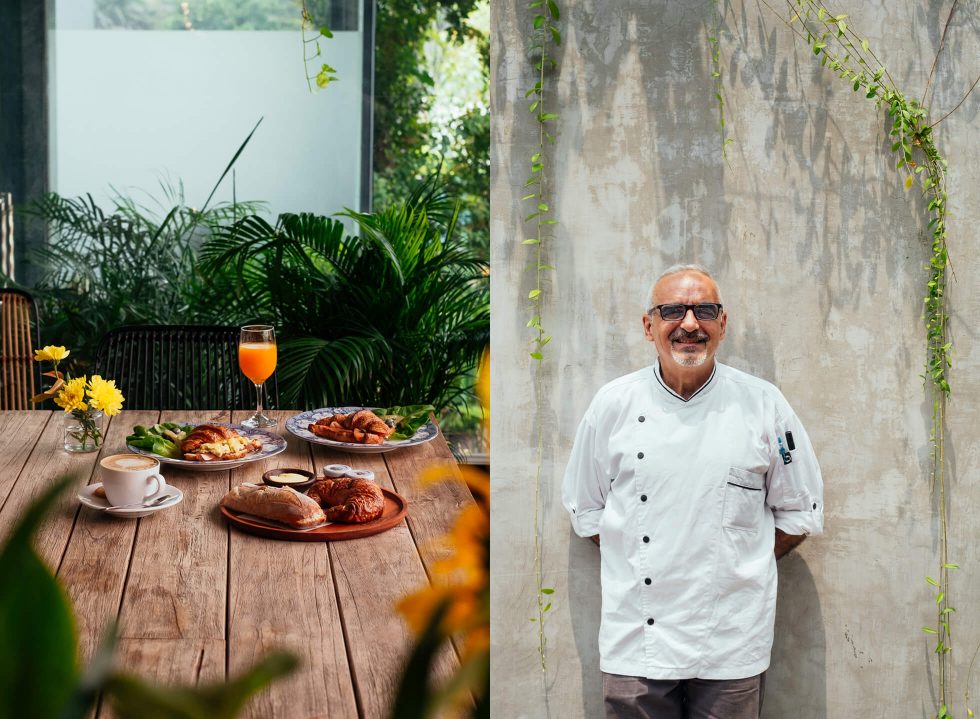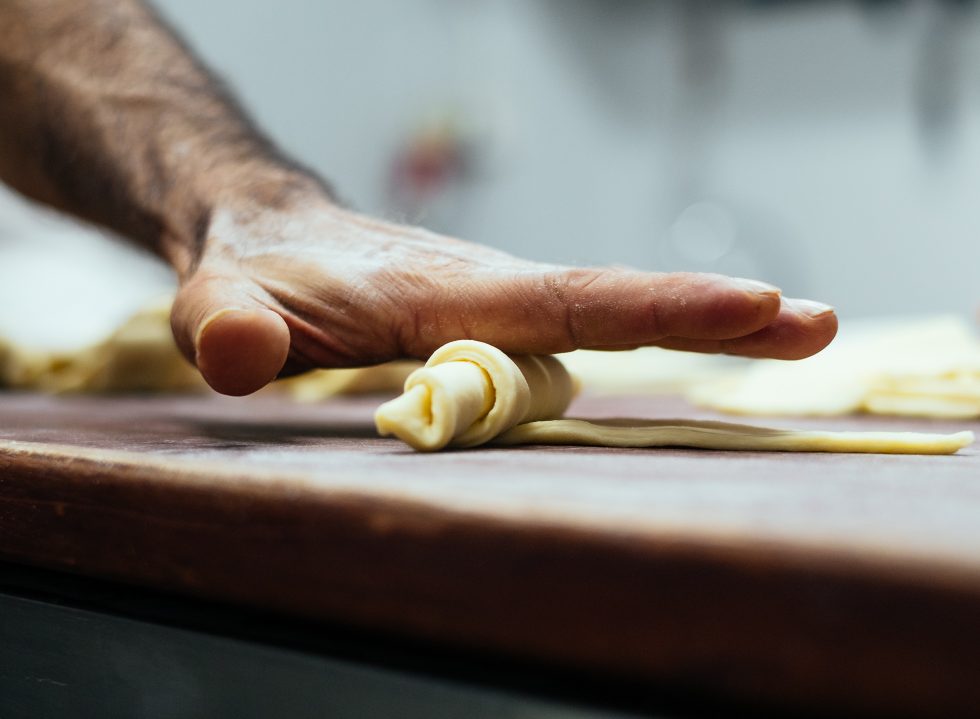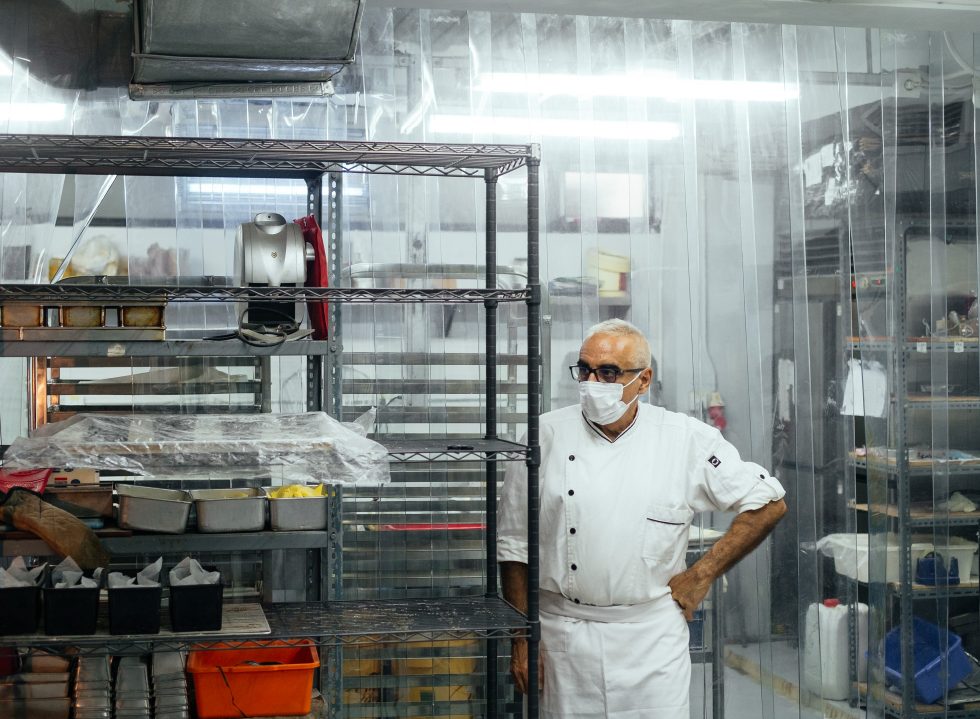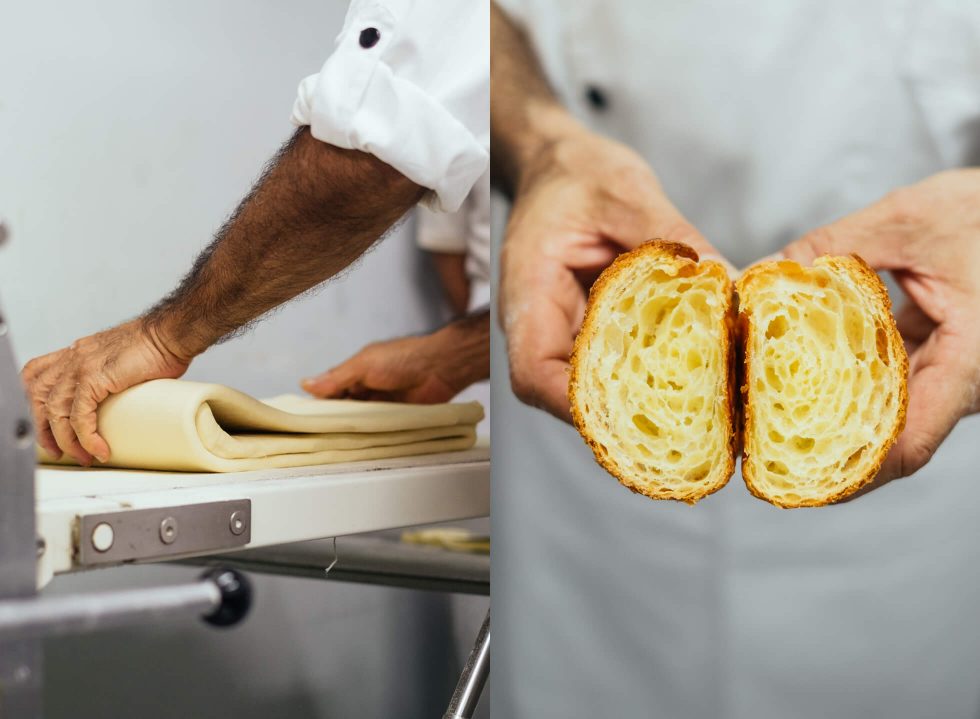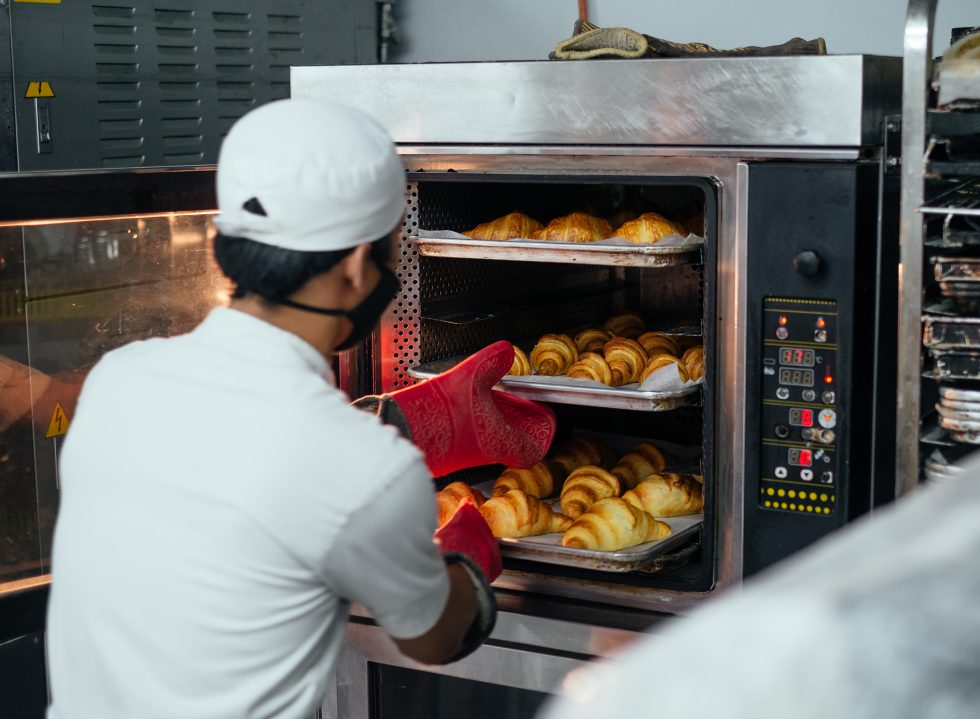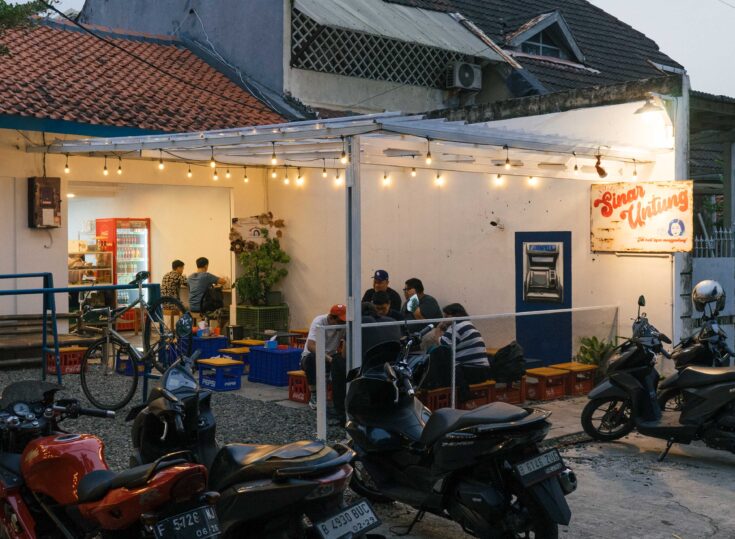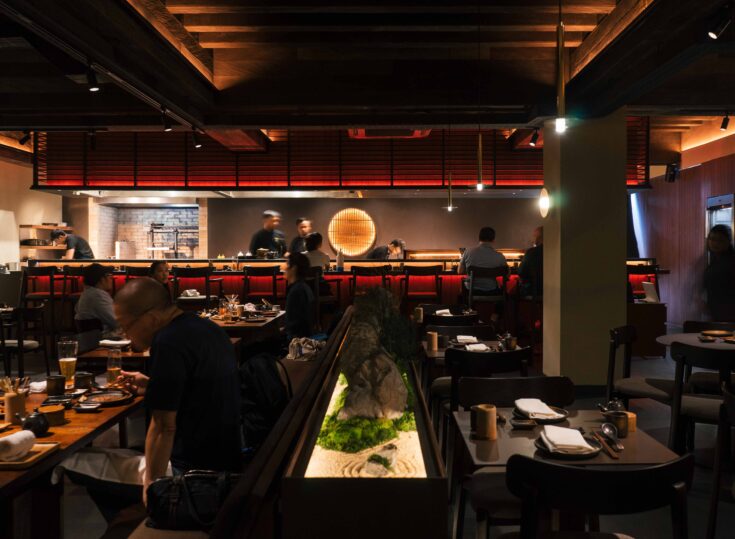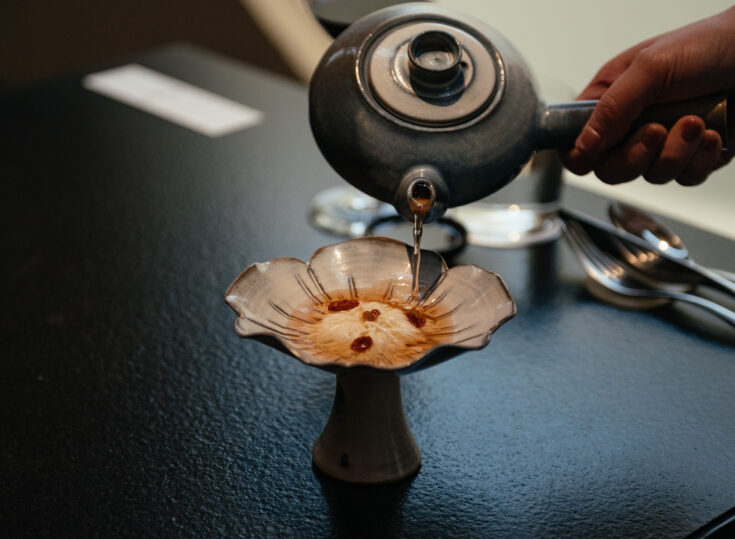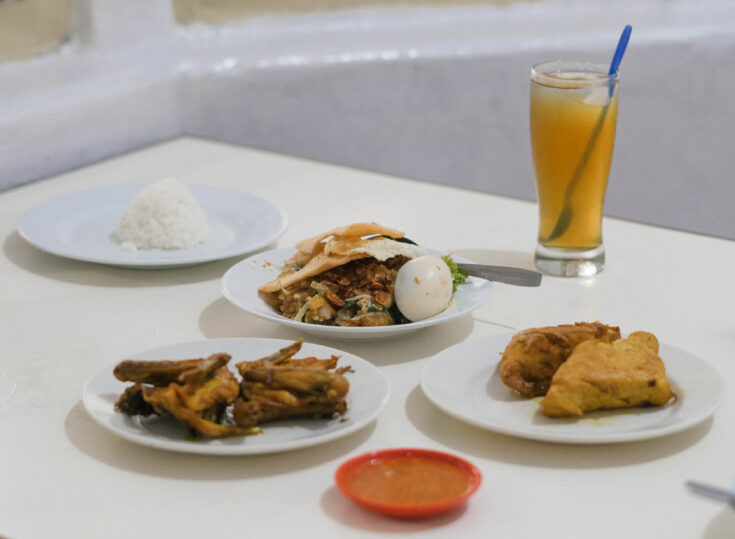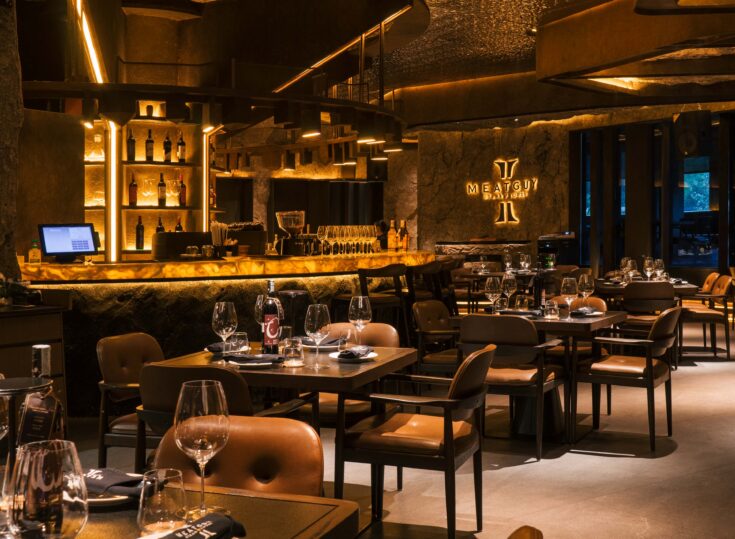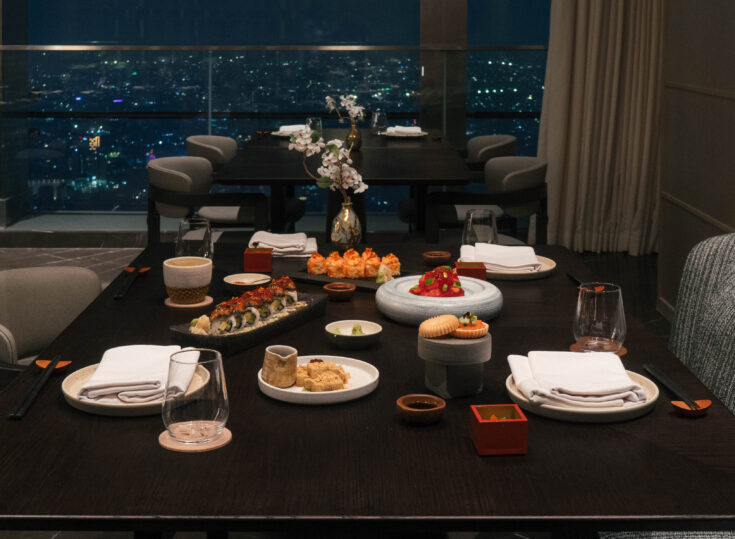From cronuts to croffles, many culinary trends have mutated out of the premise of the French staple: the iconic croissant. It all began with the introduction of Austrian kipfel in Paris through Boulangerie Viennoise, a bakery owned by Viennese-born local August Zang. Following its success, Parisian bakers adapted it with local flair and reinterpreted the baked good with puff pastry—trademarking this fine-layered, crescent-shaped pastry as their own.
In our corner of the world, down in a basement in South Jakarta, a master is hard at work. His spouse watches over the process as he tenderly balances time and temperature to achieve equilibrium over his dough and butter. The couple is Ramon and Elisabeth Medina, founders of Levant Boulangerie. On croissants and their connection to the French, Elisabeth confirms that it is no mere stereotype. “In France, the typical breakfast is [a cup of] coffee and a croissant. In most cafes, you’ll see a basket of croissants and people dipping their croissants in their coffee.”
According to Elisabeth, her husband’s love for croissants was what propelled the start of their pastry shop. The Lyonnais couple relocated to Indonesia in 2007 and recalled the difficulty of finding good quality, artisanal bread in Jakarta at the time. Longing to savour their morning rituals from back home, they started Levant with the hopes to bridge this gap.
Though bread has long been a staple in Indonesian culture, it’s a mass-produced commodity for the most part. Elisabeth added, however, that “the condition has changed in the past three years.” Nowadays, more bakeries sell sourdough and other hand-manufactured baked goods high in quality and artisanry. When asked if Levant had any impact in that, she hesitated to call Levant a pioneer. However, she agrees that their boulangerie did introduce a quality of baked goods that would become the widespread standard in the local F&B scene.
Levant’s comfortingly flaky and buttery taste that delightfully contrasts its crunchy sculpt became the benchmark of viennoiseries in Jakarta through Ramon’s mastery of the ingredients. Here, all their croissants are finely layered with premium butter imported from Belgium. “In truth, you can’t find many croissants out there like the ones we have here, not because we’re better than the others. It’s because we do not skimp on our ingredients. At Levant, our priority is not profit, but quality.”
But good ingredients are not all it takes to excel in the meticulous craft of croissant-making. The viennoiserie is known to be finicky, and its sensitive temperament presented the biggest challenge for Ramon, whose transformation from music teacher to pastry chef was all self-taught. In the first two months of the shop’s opening, their croissants weren’t in-house yet.
Now, Ramon makes his croissants with practised ease that divulges his musician background. Like with a musical instrument, precision and timing are crucial lest things go amiss as temperature, weight, and consistency affect everything from body sculpt, texture to the flavour. “I think what’s important is you have to know the product well. You have to know what it’s supposed to be like, then you work at it,” says Elisabeth.
When the sun is up or otherwise, Levant’s workshop continues to produce up to 200 full-sized croissants a day. They’re always made in excess to ensure their availability all day long. And depending on customers, some purchase them plain; others prefer varieties like the all-loved almonds croissant. The surplus (if any) is discounted or distributed to the local community in partnership with the non-profit Yayasan Usaha Mulia.
From start to finish, Ramon is involved in the process as much as possible, guiding his staff with the patience he developed over 20 years as a teacher. He hardly takes any day off. “Just like a plant that needs a stick to help it stand up straight, I am that stick,” he noted. When asked if it weren’t tiring, Elisabeth laughed, and Ramon simply replied, “While I still live, yeah, it’s okay.”
True to his intention for Levant, he summarised his love for croissants in this: “My pleasure is having one [cup of] coffee and one croissant in the morning. Gorengan (fritters) is fine, but I much prefer coffee and a croissant.”
